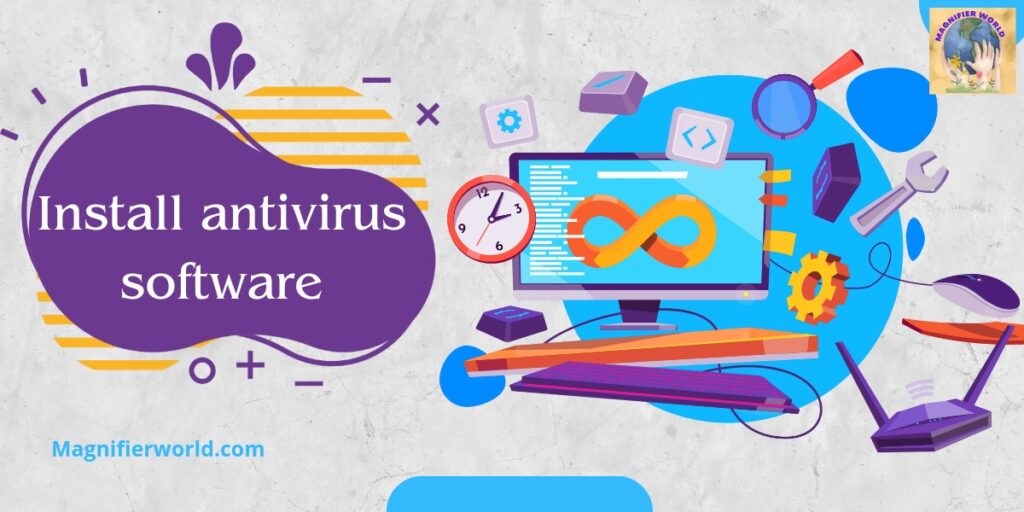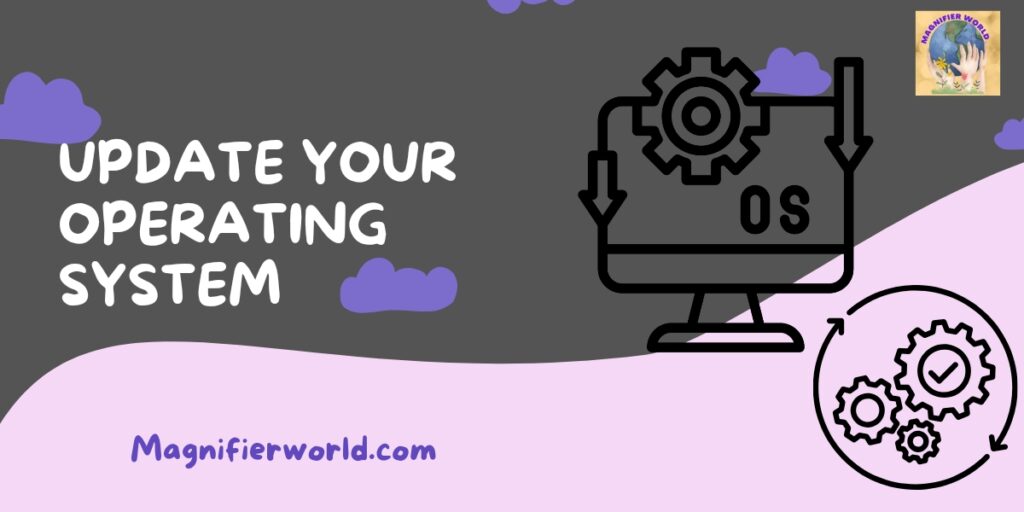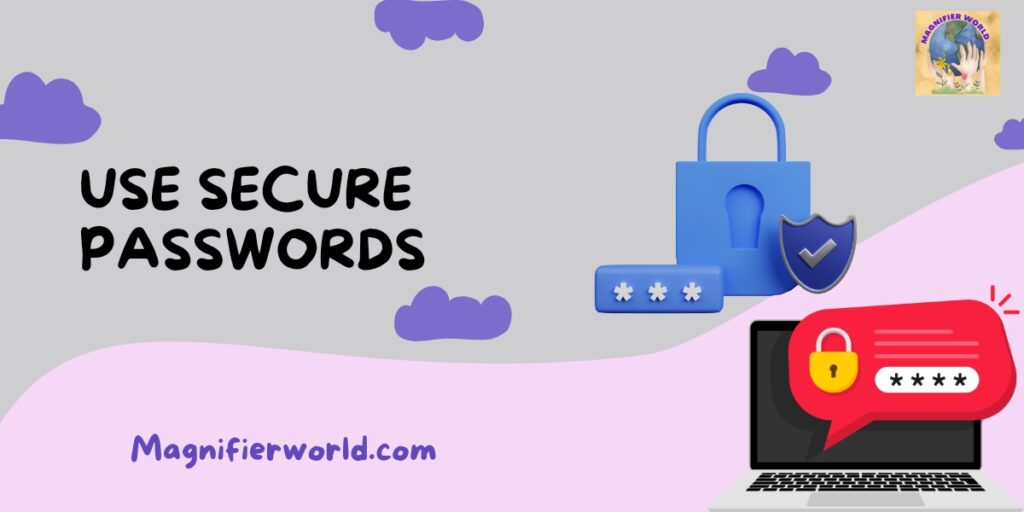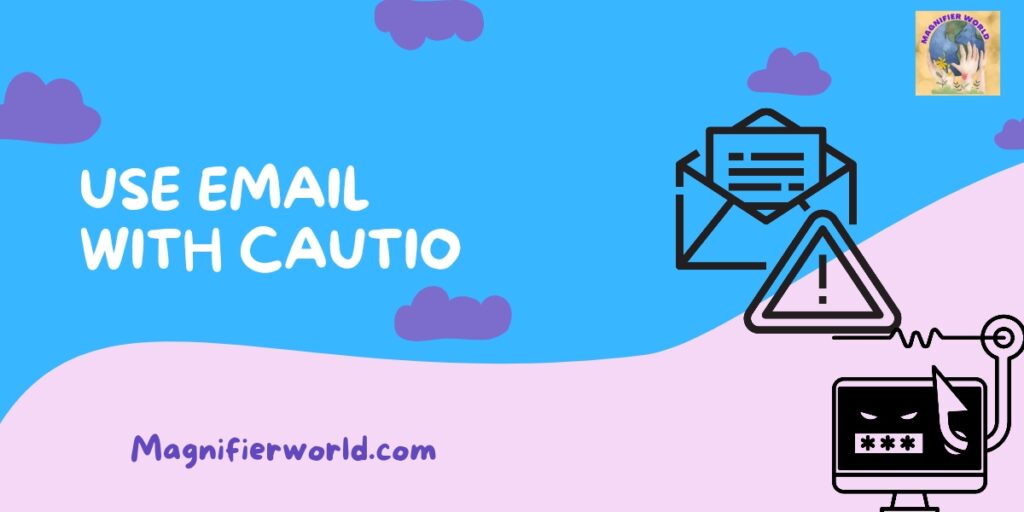Our computers act as entry points into the immense virtual universe of knowledge and opportunity in the current digital era. However, the ever-present threat of malware and computer viruses comes along with this increasing connectedness. These evil actors have the potential to damage your personal information, invade your privacy, and interfere with your daily activities. Protecting your PC from these online threats is therefore of utmost significance.
In this article, we’ll look at 10 ways to protect your computer from viruses. We will provide you with useful advice to strengthen your online defences, from setting up dependable antivirus software to adopting secure surfing practices and keeping your operating system current.

These techniques will enable you to confidently traverse the digital world, regardless of your level of computer experience, and guarantee that your computer and data are kept safe. Join us as we set out on a trip to strengthen your online fortress and safeguard your computer from the malware threat that is always developing.
1. Install antivirus software – ways to protect your computer from viruses

Keeping your computer safe from viruses and malware requires the usage of antivirus software. These applications have been created with the express purpose of identifying, stopping, and getting rid of dangerous malware from your computer. Their method of operation involves analyzing files, emails, and online traffic for recognized patterns of malicious code. The antivirus program isolates viruses when they are discovered to stop them from doing more harm. Your computer is safeguarded against the most recent malware strains thanks to the constant updates it receives to its virus definitions, which help identify new threats. It is crucial to pick renowned antivirus software since it offers real-time defense, and scheduled scans and frequently contains extra functions like phishing defense and firewall integration. Antivirus software must be updated often since new viruses are always being created and might go undetected by out-of-date software, leaving your computer open to attack.
2. Turn on Firewall

A firewall monitors incoming and outgoing network traffic by standing between your computer and the internet. It is another way to protect your computer from viruses. Depending on their source, destination, and content, it develops a set of rules that decide whether to accept, block, or filter data packets. You can stop unauthorized access to your system by turning on the built-in firewall on your computer or by utilizing a trustworthy third-party firewall program. When using public networks, such as those found in coffee shops or airports, where there is a larger danger of cyberattacks, firewalls are extremely important. They improve your overall security by blocking harmful attempts to penetrate your machine. To control possible infections, firewalls are essential in stopping malware from contacting external servers. Maintaining an operational firewall and regularly changing its settings greatly minimizes the likelihood of unauthorized access and offers a strong defence against different internet dangers.
3. Update Your Operating System – ways to protect your computer from viruses

It’s crucial for computer security that your operating system (OS) is kept up to date. Essential security patches are included in OS updates from operating systems like Windows, macOS, and Linux that fix flaws and vulnerabilities that malicious software can take advantage of. By keeping your OS updated, you can guarantee that any known security flaws are addressed, which makes it more difficult for viruses to infect your device.
Your computer becomes vulnerable if your operating system isn’t updated since hackers are always looking for vulnerable systems to exploit. These assaults may result in virus infections, data breaches, or even the loss of control over your machine. Enable automatic updates or check for updates manually at least once each month to keep it secure.
4. Use Secure Passwords

Your first line of defence against unauthorized access to your accounts is to use strong, one-of-a-kind passwords. A strong password often consists of a mix of numbers, special characters, and both capital and lowercase letters. If one account is compromised, the others will still be secure thanks to the uniqueness of a password.
Using a password manager makes it easier to generate and store secure, one-of-a-kind passwords for all of your online accounts. it is one way to protect your computer from viruses.
Additionally, changing your passwords frequently lowers the likelihood of a hack. Your security is further improved by the addition of a second layer of security provided by frequent password changes and two-factor authentication (2FA). Hackers can easily access your accounts, steal your personal information, and perhaps jeopardize the security of your computer by using weak or frequently used passwords.
5. Use email with caution – ways to protect your computer from viruses

Emails are frequently used as a channel for the propagation of malware and viruses. To deceive users into opening malware documents or clicking on dangerous links, cybercriminals frequently employ deceptive strategies like phishing emails. These emails, which urge recipients to download files or submit sensitive information, can appear to be from reliable sources. When receiving unwanted emails, especially those from senders you don’t know, proceed with utmost caution to protect your computer. If you’re not positive of their validity, avoid opening attachments or clicking on links in these communications. Even emails that appear harmless might have hidden risks. To guarantee validity, always double-check email addresses and the sender’s identity. The automated detection and quarantining of questionable emails by a powerful spam filter can also assist in preventing their arrival in your mailbox.
6. Safe Download – ways to protect your computer from viruses

Downloading files from the internet might expose your computer to malware and viruses, especially if you get your software or media from shady places. Malicious malware sometimes lurks in ostensibly safe downloads, such as free apps or media files. Only download software, programs, and files from trusted, legitimate sources to protect your computer. Avoid torrents, peer-to-peer networks, and unauthorized software repositories because they usually house pirated or cracked versions of programs that are laden with malware. To validate the validity of the file, always check the reliability of the source and read user reviews.
Additionally, keep your operating system and any applications updated to fix any potential flaws that malware sent through downloads could exploit. A secure computing environment must be maintained by adopting safe downloading practices is another way to protect your computer from viruses.
7. Switch on automatic updates – ways to protect your computer from viruses

A significant component of computer security is the use of automatic updates. They refer to a feature that enables updates and patches to be downloaded and installed automatically by your operating system, software programs, and web browsers. Because they frequently include security upgrades that address known vulnerabilities, these updates are crucial. You can make sure that your system and applications are always using the most recent, secure versions by allowing automatic updates. Older software and operating systems with known security problems are routinely targeted by cybercriminals, rendering them more vulnerable to malware and other online dangers. By eliminating the need for you to continually check for and manually install updates, automatic updates minimize the window of opportunity for hackers to exploit flaws in your system. To proactively safeguard your computer from viruses and other internet risks, you should update your software often.
8. Utilise pop-ups and ad blockers – ways to protect your computer from viruses

Software applications that assist you in improving your online security and surfing experience include ad-blockers and pop-up blockers. A variety of internet adverts, including those that can be dangerous or misleading, are blocked by ad blockers. By preventing these advertisements from loading, you lower the chance that you’ll click on an advertisement that might take you to a malicious website or start a malware download. The use of pop-up blockers, on the other hand, stops obtrusive and potentially hazardous pop-up windows from displaying when you visit websites. Several pop-ups can be used to spread malware or phishing attacks. Utilizing pop-up blockers reduces your vulnerability to these tricks and helps you maintain the safety and concentration of your online activities. These are effective ways to protect your computer from viruses. A more secure online environment may be achieved by reducing exposure to online risks and using ad-blockers and pop-up blockers, which are not a replacement for other security measures.

9. Become Knowledgeable – ways to protect your computer from viruses

With knowledge comes the ability to be safe online. Maintaining an up-to-date knowledge of cybersecurity dangers and recommended practices is essential. Be sure to keep up with the latest malware developments and typical phishing schemes. Acquire the ability to spot shady downloads, webpages, and emails. Keep up with the latest information on the most common virus and malware strains, as well as the techniques hackers employ to attack computer systems. By keeping up with current events, you give yourself the capacity to decide wisely, avert threats, and act appropriately if you run into a dubious circumstance.
The ability to educate others makes it possible for you to not only secure your computer but also to make the internet a safer place for everyone.
10. Protect Your Data
A crucial first step in defending your critical files from viruses and other possible dangers is to regularly back up your data. You may be sure that your important papers, pictures, and data are safe even if your computer is attacked by a virus or malware by creating backups on external devices or secure cloud services. Having current backups allows you to retrieve your data without paying a ransom or suffering an irreparable loss in the event of hardware failure, unintentional file deletion or malware assault encrypting your files (like ransomware). Regular backups provide you peace of mind since they make it possible for you to restore your information quickly and effectively, minimizing the chance that an unplanned digital disaster would impair your professional or personal life. It is one of the crucial ways to protect your computer from viruses.
Read Also:-
- Exploring the Best Video Editing Software for YouTube Beginners
- Best Free Plagiarism Checker
- Mobile Phone Good or Bad for Students
Conclusion

Protecting your computer against viruses is essential in today’s digital era to guarantee a flawless and secure online experience. We looked at 10 ways to protect your computer from viruses and harmful attacks. Your first line of defence should include installing reliable antivirus software and keeping it updated, using care when online, and avoiding downloading dubious attachments.
Your security posture is further improved by performing regular system upgrades and using strong, one-of-a-kind passwords, which makes it more difficult for hackers to get past your defences. Use of firewalls, secure email practices, and staying away from pirated software all considerably increase your computer’s resistance to infections. Always maintain a cautious attitude; knowing the most recent cybersecurity dangers enables you to make educated decisions online.
By putting these procedures into practice, you not only protect your personal information and sensitive data, but you also make the internet a safer place for everyone. Let these tactics act as your armour while you explore the huge virtual environment, protecting your machine from the always-increasing perils of the internet.
FAQs on ways to protect your computer from viruses
1. How do computer viruses work?
- The correct answer is that a computer virus is a type of harmful software that may infect your computer, proliferate, and do many types of damage.
2. What malware defences are available for my computer?
- Use antivirus software, make sure your operating system and other applications are up to date, and exercise caution when downloading and opening files from dubious sources to keep your computer safe from infections.
3. Is updating my operating system necessary?
- As updates frequently include security patches to guard against the latest viruses and vulnerabilities, keeping your operating system updated is essential.
4. Why is antivirus software necessary?
- The correct response is that antivirus software checks your computer for viruses and malware and either eliminates them or quarantines them to stop damage.
5. Are email attachments safe to open without worrying about viruses?
- No, be cautious while opening email attachments. Avoid suspicious or unexpected attachments, and only open those from reliable sources.
6. Why do I need a firewall and what is it?
- A firewall is a safety measure that aids in preventing unauthorized access to your computer. You require it to shield your computer from viruses and hackers.
7. Do software upgrades matter that much?
- Yes, security patches that help shield your computer from the most recent malware threats are frequently included in software updates.
8. Is it possible to avoid infections by just going to reliable websites?
- Although trusted websites are safer, infections are still a possibility. Having antivirus protection is therefore necessary, even while visiting reliable websites.
9. What are the risks associated with using pirated software?
- spyware and viruses are frequently present in pirated software. Use only legal, licenced software since doing otherwise is dangerous and unlawful.
10. How often should I back up my data?
- To guarantee that you can retrieve your files in the event that a virus affects your computer, you should regularly back up your data to an external source, such as an external hard drive or cloud storage.










